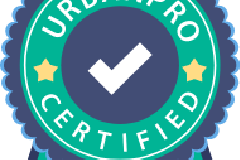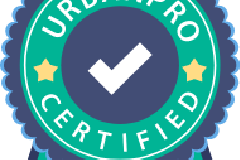In the class of calculus we will complete the following topics:-
Functions
Limits continuity differentiability
Applications Of Derivatives
Integration
Applications of Integration
Differential Calculus
This is the complete course for cbse student to understand the calculus. Student finds difficulty in this section of Maths so no worries anymore I have specially designed the course in a structured way to complete all the possible aspects of calculus in a very easy and understandable way.
Course Structure and Content:
Unit 1: Continuity and Differentiability (15-18 hours)
* Limits:
* Introduction to Limits: Intuitive understanding, algebraic evaluation of limits.
* Limits at infinity and infinite limits.
* Evaluation of limits using standard formulas and techniques.
* \lim_{x \to a} \frac{f(x)}{g(x)} form.
* \lim_{x \to 0} \frac{\sin x}{x}, \lim_{x \to 0} \frac{1 - \cos x}{x}, \lim_{x \to 0} (1+x)^{1/x}, \lim_{x \to \infty} (1+\frac{1}{x})^x.
* Continuity:
* Definition of continuity at a point and over an interval.
* Algebra of continuous functions.
* Discontinuity and types of discontinuities.
* Differentiability:
* Definition of the derivative as the limit of the difference quotient.
* Geometric interpretation of the derivative.
* Relationship between continuity and differentiability.
* Derivatives of algebraic, trigonometric, exponential, and logarithmic functions.
* Derivatives of composite functions (chain rule).
* Derivatives of inverse trigonometric functions.
* Implicit differentiation.
* Derivatives of parametric functions.
* Second-order derivatives.
Unit 2: Applications of Derivatives (12-15 hours)
* Rate of Change of Quantities: Applying derivatives to find the rate at which one quantity changes with respect to another.
* Increasing and Decreasing Functions: Using the first derivative test.
* Tangents and Normals: Finding the equations of tangents and normals to curves.
* Approximations: Using differentials to approximate values.
* Maxima and Minima:
* First derivative test and second derivative test for finding local maxima and minima.
* Absolute maxima and minima on a closed interval.
* Word problems involving optimization.
Unit 3: Integrals (20-25 hours)
* Indefinite Integrals:
* Integration as the inverse process of differentiation.
* Basic integration formulas.
* Integration by substitution.
* Integration by parts.
* Integration using partial fractions (for linear and non-repeated quadratic factors).
* Definite Integrals:
* Definition of a definite integral as the limit of a sum (Riemann sums - conceptual understanding).
* Fundamental Theorem of Calculus (both parts).
* Properties of definite integrals.
* Evaluation of definite integrals using substitution and other techniques.
* Applications of Integrals:
* Area under simple curves, area between two curves.
* Volumes of solids of revolution (simple cases - discs and washers).
Unit 4: Differential Equations (8-10 hours)
* Definition and Order of a Differential Equation.
* General and Particular Solutions of a Differential Equation.
* Formation of Differential Equations whose General Solution is Given.
* Methods of Solving First-Order, First-Degree Differential Equations:
* Separation of variables.
* Homogeneous differential equations.
* Linear differential equations.
Teaching Methodologies:
* Interactive Lectures: Engaging students with thought-provoking questions, real-world examples, and visual aids.







